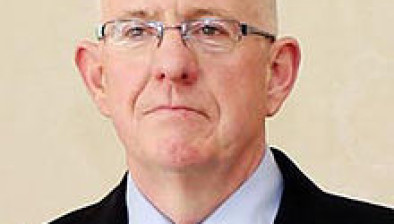Criminal Assets Bureau legislation to be strengthened

Simon Harris
New legislation aimed at preventing criminals from using “repeated court challenges” to stymie the work of the Criminal Assets Bureau (CAB) will be published within weeks.
The move was announced by justice minister Simon Harris at the Association of Garda Sergeants and Inspectors (AGSI) annual conference this week.
“The Criminal Assets Bureau has been at the forefront of fighting organised crime and disrupting the activities of criminal gangs since 1996,” Mr Harris told the conference.
“It is a world leader in seizing the ill-gotten gains of criminals — and I want to ensure it remains a world leader.
“I will publish draft legislation in the coming weeks outlining significant reforms arising from a review of our proceeds of crime legislation.”
The operation of CAB is underpinned by the Proceeds of Crime Act 1996, which has been amended twice, in 2005 and 2016.
Mr Harris said some of the “most serious criminals” in the State had “tried to stymie its work through repeated court challenges”, in some cases continuing to “enjoy the use of their assets and property for lengthy periods by using these delaying tactics”.
Under the new legislation, courts will automatically appoint a receiver to a property when an order is made on whether an asset is a proceed of crime.
“This will mean that the property will be in the possession of a receiver, and will not be available for use by the person being pursued by the CAB pending a final disposal order, which currently can last up to seven years,” Mr Harris said.
The legislation will also reduce the seven-year period that must normally elapse before criminal proceeds may be confiscated following a court decision that an asset is a proceed of crime to two years.
CAB will also gain further powers to allow it more effectively share information with other State agencies and with law enforcement in other jurisdictions.
The bill will also grant anonymity to former non-garda CAB officers, other former CAB staff, experts from, regulatory or investigative bodies or independent experts, such as financial analysts, occasionally contracted by the CAB, when called upon to give evidence at proceeds of crime hearings.









